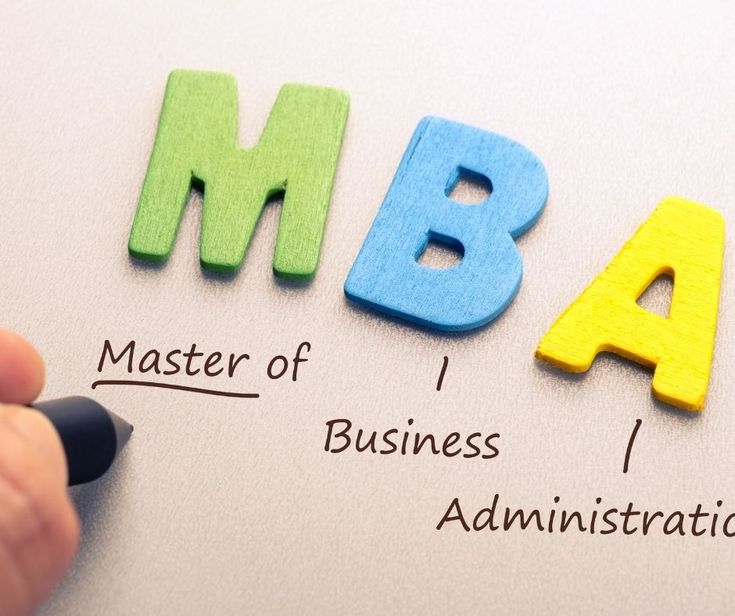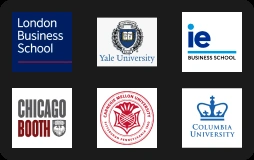
Deferred MBA Programs
Deferred MBA: Everything You Need to KnowDeferred MBA programs are becoming increasingly p…
Table of Contents

Have you been thinking about pursuing an MBA abroad but are unsure where to go? Let me introduce you to a rising star—MBA in France. Over the past few years, France has rapidly climbed the ladder as one of the top destinations for business education. Why is it becoming so popular? Well, with its world-class institutions, multicultural environment, and strategic location in Europe, France ticks all the right boxes.
And let’s not forget the affordability and return on investment—two factors that make it a great choice for students, especially from countries like India. So, what’s the big deal about doing an MBA in France? Stick with me and I’ll break it all down for you.
Why are more Indian students choosing France for their MBA? For starters, top French MBA programs offer globally recognized degrees without the overwhelming cost of studying in the U.S. or the U.K. Plus, Indian students can benefit from:
Here’s a quick look at why France is such an appealing option for Indian MBA aspirants:
If you’re considering an MBA in France, here are some of the standout features you can expect:
Top-Tier Business Schools: France is home to prestigious institutions like INSEAD, HEC Paris, and ESSEC. These schools are renowned globally for their MBA programs, offering a perfect balance of theory and practical experience.
Global Network: One of the biggest advantages of doing an MBA in France is the vast network you’ll build. Graduating from a French MBA program gives you access to alumni and business networks across Europe and beyond.
Multicultural Learning Environment: You won’t just be learning from professors—you’ll also be surrounded by students from diverse backgrounds. This exposure will help you develop a truly global business mindset.
Shorter MBA Duration: Most MBA programs in France are just 10 to 16 months long, which means you can get back into the workforce faster.
Let’s take a look at the top MBA universities in France and the program fees:
University | Global Rank | Program Duration | Tuition Fees (Approx.) |
| INSEAD | 2 (Global) | 10 months | €89,000 |
| HEC Paris | 4 (Europe) | 16 months | €78,000 |
| ESSEC Business School | Top 10 | 12-15 months | €50,000 |
| EDHEC Business School | Top 20 | 10 months | €44,000 |
Key Advantage | Details |
| World-Renowned Business Schools | INSEAD, HEC Paris, ESSEC rank among the top global MBA programs, recognized for their excellence. |
| Internationally Recognized Degrees | Degrees from French business schools are respected globally, opening doors to opportunities worldwide. |
| Affordable Tuition Compared to the U.S. & U.K. | MBA tuition in France ranges from €40,000 to €90,000, which is lower than U.S. and U.K. programs. |
| Multicultural Learning Environment | French MBA programs attract students from over 100 nationalities, providing a diverse, global perspective. |
| Strong Alumni Networks | French schools have extensive networks across industries like luxury, finance, and consulting worldwide. |
| Focus on Luxury, Fashion, & Innovation | Programs offer specializations in luxury brand management and innovation with top industry connections. |
| Post-Graduation Job Opportunities | France offers a two-year post-study work visa, providing international students time to find jobs. |

Business School | Global Ranking | Specializations | Unique Features |
| INSEAD | 2nd (Financial Times) | International Business, Strategy, Finance, Entrepreneurship | Renowned for its global network and campuses in France, Singapore, and Abu Dhabi. Fast-paced 10-month MBA program. |
| HEC Paris | 4th (Europe) | Strategy, Finance, Entrepreneurship, Luxury Management | Strong alumni network and focus on leadership development. Partnerships with top international firms. |
| ESSEC Business School | Top 10 | Luxury Brand Management, Finance, Entrepreneurship | Specializes in luxury and brand management. Strong ties with LVMH, Cartier, and other luxury brands. |
| EDHEC Business School | Top 20 | Global Business, Finance, Entrepreneurship | Focus on business innovation. Partnerships with top companies like L’Oréal and Capgemini. |
| Grenoble Ecole de Management | Top 25 | Innovation, Technology Management, International Business | Strong emphasis on tech and innovation with a focus on sustainable business. |
| EMLYON Business School | Top 30 | Entrepreneurship, Innovation, Digital Transformation | Known for its entrepreneurial focus and global incubator network. Strong links with startups. |
| ESCP Europe (Paris Campus) | Top 30 | International Management, Marketing, Digital Transformation | Oldest business school in the world, with campuses across Europe, offering a unique multi-campus experience. |
| SKEMA Business School | Top 40 | International Business, Strategy, Finance | Global footprint with campuses in France, Brazil, China, and the U.S., offering an international experience. |
| Audencia Business School | Top 50 | Sustainable Business, Entrepreneurship, Marketing | Focuses on sustainability and CSR (Corporate Social Responsibility), offering a specialized MBA in Responsible Management. |
| Toulouse Business School | Top 50 | Aerospace Management, Finance, Marketing | Known for its Aerospace MBA, with strong connections to the European aerospace industry. |
Eligibility Criteria | Details |
| Academic Requirements | Bachelor’s degree or equivalent qualification. Business background helpful but not mandatory. |
| Work Experience | 2-3 years minimum, with top schools preferring 5-7 years. Executive MBA programs may require 10+ years. |
| English Proficiency | IELTS (6.5-7.0) or TOEFL (90-100) for non-native speakers. May be waived if previous education was in English. |
| GMAT/GRE Scores | GMAT: 600–700+ preferred; GRE scores also accepted. Some schools offer GMAT waivers based on work experience. |
| Statement of Purpose (SOP) | A detailed explanation of your career goals and reasons for pursuing an MBA. Tailor it to each school. |
| Letters of Recommendation | 2-3 LORs from managers or supervisors who can vouch for your professional achievements and leadership potential. |
| Additional Criteria | Interviews, extracurricular involvement, leadership potential, and cultural fit are also assessed. |
France offers excellent MBA programs at prestigious business schools, often at a more affordable rate than their counterparts in the U.S. and U.K. But how much does an MBA in France really cost, and what kind of financial assistance is available to international students? Let’s dive into tuition fees, living costs, and scholarship opportunities.
Tuition fees for an MBA in France vary depending on the institution.
Beyond tuition, the cost of living in France is another factor to consider. Depending on the city, you’ll need to budget for rent, food, transport, and other daily expenses. Paris is, unsurprisingly, the most expensive city, but other cities like Lyon and Nice offer more affordable living costs.
City | Average Monthly Rent (Shared Apartment) | Food Costs (Monthly) | Public Transport (Monthly) | Total Estimated Living Costs (Monthly) |
Paris | €1,000 - €1,500 | €300 | €75 | €1,500 - €1,800 |
Lyon | €600 - €1,000 | €250 | €60 | €1,200 - €1,500 |
Nice | €700 - €1,100 | €280 | €55 | €1,200 - €1,600 |
Toulouse | €500 - €900 | €250 | €50 | €1,000 - €1,300 |
Good news! There are a number of scholarships available for international students pursuing an MBA in France. These scholarships help offset tuition fees and sometimes even cover living expenses. Here’s a list of general and university-specific scholarships:
Several top French business schools offer merit-based or need-based scholarships to international students:
INSEAD Diversity Scholarship: Aimed at students from diverse backgrounds, this scholarship offers up to €20,000 in funding.
HEC Paris MBA Scholarships: Covers up to 50% of tuition fees for outstanding international students, based on merit and financial need.
ESSEC Excellence Scholarship: Open to high-performing students, this scholarship covers up to 30% of tuition fees.
EDHEC Global MBA Scholarships: Up to 50% off tuition for candidates with strong academic backgrounds or leadership potential.
Scholarships for Indian Students
Indian students have access to several scholarships specifically designed to support their studies in France. These scholarships can significantly reduce the overall cost of an MBA:
Scholarship | Details |
| Charpak Scholarship | Managed by the French Embassy in India, it offers tuition fee waivers, living allowances, and health insurance. |
| Eiffel Excellence Scholarship | Prestigious government scholarship covering tuition, living expenses, and travel grants for top students. |
| INSEAD India Scholarship | Designed for Indian MBA students at INSEAD, offering financial assistance of up to €25,000. |
| HEC Paris India Scholarship | Awards €5,000 to €15,000 to Indian students with exceptional academic and professional backgrounds. |
In addition to school-specific scholarships, there are government and private sector scholarships available to help fund your MBA in France:
Erasmus+ Scholarships: Available to students from both EU and non-EU countries for study abroad in Europe, including France.
La Fondation des Ponts Scholarship: Provides financial support to students pursuing their MBA in France, with an emphasis on academic excellence.
Total Scholarships: Sponsored by Total, these scholarships are aimed at students from developing countries, offering partial or full funding.

Graduating with an MBA in France opens doors to various high-demand industries like luxury, consulting, finance, and technology. France’s strategic position in Europe and its vibrant economy make it an attractive destination for MBA graduates seeking to launch or advance their careers.
Salaries for MBA graduates in France vary based on the industry, role, and company. Here’s a quick breakdown of average salaries across major industries:
Industry | Average Salary (Annual) | Common Roles |
| Consulting | €80,000 - €120,000 | Management Consultant, Strategy Consultant |
| Finance | €90,000 - €130,000 | Investment Banking Associate, Financial Analyst |
| Luxury & Fashion | €70,000 - €100,000 | Brand Manager, Marketing Director |
| Technology | €80,000 - €110,000 | Digital Transformation Manager, Product Manager |
| Entrepreneurship/Startups | €60,000 - €90,000 | Founder, Business Development Manager |
Salaries tend to increase with experience, and MBAs working in Paris generally command higher wages than those in smaller cities. Bonus packages and stock options are also common in fields like finance and consulting, further enhancing earning potential.
Several prestigious companies in France actively recruit MBA graduates, offering roles across various sectors. Here’s a list of top companies by industry:
Industry | Top Employers |
| Consulting | McKinsey & Company, Boston Consulting Group (BCG), Bain & Company |
| Finance | BNP Paribas, Société Générale, Credit Agricole, AXA |
| Luxury | LVMH, Chanel, Hermès, Kering |
| Technology | Capgemini, Dassault Systèmes, Orange, Ubisoft |
| Aerospace | Airbus, Safran, Thales Group |
| Energy | TotalEnergies, Schneider Electric, Engie |
These companies offer diverse roles, from consulting and marketing to project management and digital transformation, making them ideal targets for MBA graduates looking to work in France.
Placement statistics from some of France’s top business schools:
Business School | Average Salary (Post-MBA) | Placement Rate (Within 3 Months) | Top Hiring Sectors |
| INSEAD | €105,000 | 93% | Consulting, Finance, Tech |
| HEC Paris | €110,000 | 92% | Finance, Consulting, Luxury |
| ESSEC Business School | €95,000 | 90% | Luxury, Consulting, Entrepreneurship |
| EDHEC Business School | €85,000 | 88% | Finance, Consulting, Tech |
These career services ensure that you’re not just gaining an education—you’re also getting comprehensive support to land your dream job.
If you’re pursuing an MBA in France, knowing your visa options post-graduation is crucial. France offers several pathways for international students to stay and work after completing their studies.
After completing your MBA, you can apply for the APS (Autorisation Provisoire de Séjour), which allows you to stay in France for up to 24 months while you seek employment or start a business.
Duration: Initially granted for 12 months, with a possible extension of another 12 months.
Work Opportunities: You can work in any job related to your degree or start your own business.
Once you secure a job, you can transition to the Talent Passport (Passport Talent) visa, a long-term permit designed for highly skilled professionals.
Eligibility: A job offer with a salary of at least €38,475/year.
Duration: Valid for up to 4 years, renewable, and allows family reunification.
Types: Includes categories like Qualified Employee (for full-time jobs) and Business Creator (for entrepreneurship).
If you plan to stay long-term, you can apply for Permanent Residency (PR) after five years of legal residency in France.
Requirements: Five consecutive years of residency, stable employment, French language proficiency, and social contributions.
PR Benefits: A 10-year renewable resident permit that allows you to live and work in France without restrictions.

Yes, several top business schools in France offer GMAT waivers or allow you to apply with alternatives like a strong academic background or work experience. Let’s dive into the options!
Business School | GMAT Waiver Policy |
| INSEAD | Offers waivers for applicants with substantial work experience or academic excellence. |
| HEC Paris | GMAT may be waived for candidates with exceptional leadership and academic performance. |
| ESSEC Business School | Waivers granted to applicants with a master’s degree or significant professional experience. |
| EDHEC Business School | Applicants with 8+ years of work experience may be considered for a GMAT waiver. |
| SKEMA Business School | GMAT waiver possible for applicants with a strong academic background or professional experience. |
If you don’t have a GMAT score, here’s how you can strengthen your application:
Alternative | Details |
| Strong Academic Record | High GPA, relevant degrees, or academic awards can enhance your application. |
| Work Experience | Extensive professional experience, particularly in leadership roles, can be a substitute. |
| GRE Scores | Some schools accept GRE scores as an alternative to the GMAT. |
Pros | Cons |
| Saves Time: No need to prepare for GMAT | Fewer School Options: Not all schools offer waivers. |
| Work Experience Focus: Highlights career | More Competition: You’ll need a stronger overall application. |
| Flexibility: Less standardized test pressure | Limited Programs: Fewer choices for schools that don’t require GMAT. |
France has rapidly become a top destination for MBA aspirants due to its world-renowned business schools, affordable tuition compared to the U.S. and U.K., and strong job market. Whether you’re interested in consulting, luxury, tech, or finance, an MBA in France opens doors to a global network and industry connections. With flexible visa options, scholarships, and the opportunity to transition into permanent residency, France provides international students, particularly from India, a solid pathway for career growth.
If you’re ready to pursue an MBA in France, don’t navigate the process alone! MastersBuddy is here to guide you every step of the way—from choosing the best school to applying for scholarships and navigating the visa process. Reach out to MastersBuddy today and start your journey toward an international career in one of the most exciting countries in Europe! Let’s get started on your MBA dreams together.

